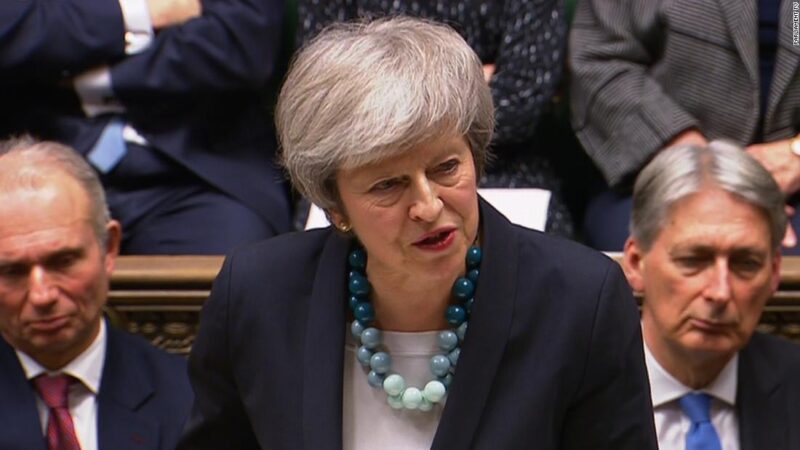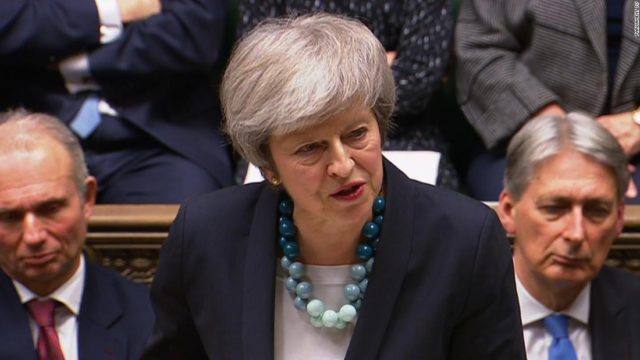Global Issues
Brexit: A Fine Mess In Theresa May’s Britain -By Salil Tripathi

The mess in which British Prime Minister Theresa May finds herself (she is struggling to survive a no-confidence vote within her party as I write this) is partly her own making, but also partly because of irresponsible political leadership in Britain’s two leading parties in handling the country’s most important relationship, with Europe.
Britain is of Europe, but not in Europe: an island that has always seen its ties across the channel and the North Sea as ambiguous. As a former empire that once ruled vast parts of the world, Britain has never quite understood its diminished role and influence. A significant portion of its leadership believes returning to those glorious days is easy and that Europe is a patchwork of warring neighbours who are best kept at distance—divide them, and the little island can rule. Many in Britain believe that the world is waiting for Britain to play its self-appointed role: that’s an adolescent fantasy.
The long-running vaudeville drama in Britain about how to disengage with Europe is a large-scale dramatization of an Oxford or Cambridge Union debate about Britain’s role in the world. Those debates can be fun. Well-dressed students from privileged families debate important matters of the day with sophistication and sophistry, jousting with rivals to win the argument, before retiring to a three-course meal (with wine) with those rivals. The argument and how it is delivered are the drivers, not the substance, in which they may not believe.

Theresa May after surviving Confidence vote.
During the debate on whether Britain should stay in Europe or leave, former foreign secretary Boris Johnson said he was pro having the cake and pro eating it. That’s irresponsible, laughable and disingenuous—adjectives which also describe how most rational people look at Johnson’s politics—and deluded as it sees Brexit as Schrödinger’s cat—a thought experiment which “proves” that a cat can be dead and alive at the same time. Britain wants to be out of Europe and in it at the same time, without adverse consequences. It wants the benefits of the open market without accepting free movement of people. Instead, it has chosen to implement European rules while giving up the opportunity to shape them.
During the sparring, Britain forgot Ireland, with which it shares border. May had foolishly called midterm elections in 2017, lost her majority and was then forced to rely on support from a fundamentalist Irish party to remain in power, weakening her flexibility. The Good Friday Agreement, which brought peace to Ireland, would collapse without a frictionless border with Britain.
Conservatives who wanted to leave Europe thought they could fudge that, only to discover that they couldn’t. May’s heart has never been in leaving Europe, though she never seemed enthusiastic about staying either. Watching her campaign to remain was like watching Geoff Boycott bat—a monumental display of endurance.
The complicating facts are these: Tories who wanted to leave never thought they’d win. Once they won, they didn’t want the hard part of negotiating a deal in Britain’s interest. Under no circumstances would Britain be better off outside Europe, but no British politician had the courage to say that. Tories had no idea how complex negotiations would be, with Europe and with the rest of the world. They’ve squandered their reputation for competence.
Jeremy Corbyn, the leader of the opposition, sees the European Union (EU) as a giant imperialist/capitalist/neoliberal conspiracy that must be undone. He
campaigned to remain in Europe with
the reluctance of a tail-ender facing bowling he didn’t like and wanting his stint
at the wicket to end soon, because he wanted to play another kind of match—a general election. The “will of the people”, to leave Europe, was almost evenly divided, a difference of less than 2%; a 1% swing would have seen a different outcome. Now many British citizens want a fresh vote, but the politicians are wedded to the outcome which is probably deeply flawed, as there have been campaigning irregularities.
And so we enter the final act. May thinks she has ducked a bouncer by scrapping a parliamentary vote over her Brexit deal, as she knew she would lose. Ambitious Tories see the chance to have a new leader. Many MPs from both sides—remain and leave—want a fresh referendum. May doesn’t want to offer one for reasons best known to herself. Corbyn wants a new election, not a new referendum, since he’d rather get the prime ministership first. The British public is torn between leaving the EU and getting done with it, or wishing, somehow, that something would happen and that someone would take the decision away from them.
There is one silver lining. The European Court of Justice ruled last week that it may be incredibly easy to return to a simpler past, if Britain were to revoke its notice to the EU that it intends to leave the union by March 2019. Then the last two years would be seen as two years wasted, during which Britain should have realized that it had to grow up. However, May ruled out withdrawing the notice and Britain fumbles and blunders on, incompetently and pathetically marching towards an abyss, showing spectacular ineptness in understanding its role in the world, its Tories exposing outright incompetence in running the country, and its politicians displaying cynical lack of concern towards citizens or their best interests.
The Oxford English Dictionary might have to describe a Greek tragedy in future as an English one instead
Salil Tripathi is a writer based in London.

















